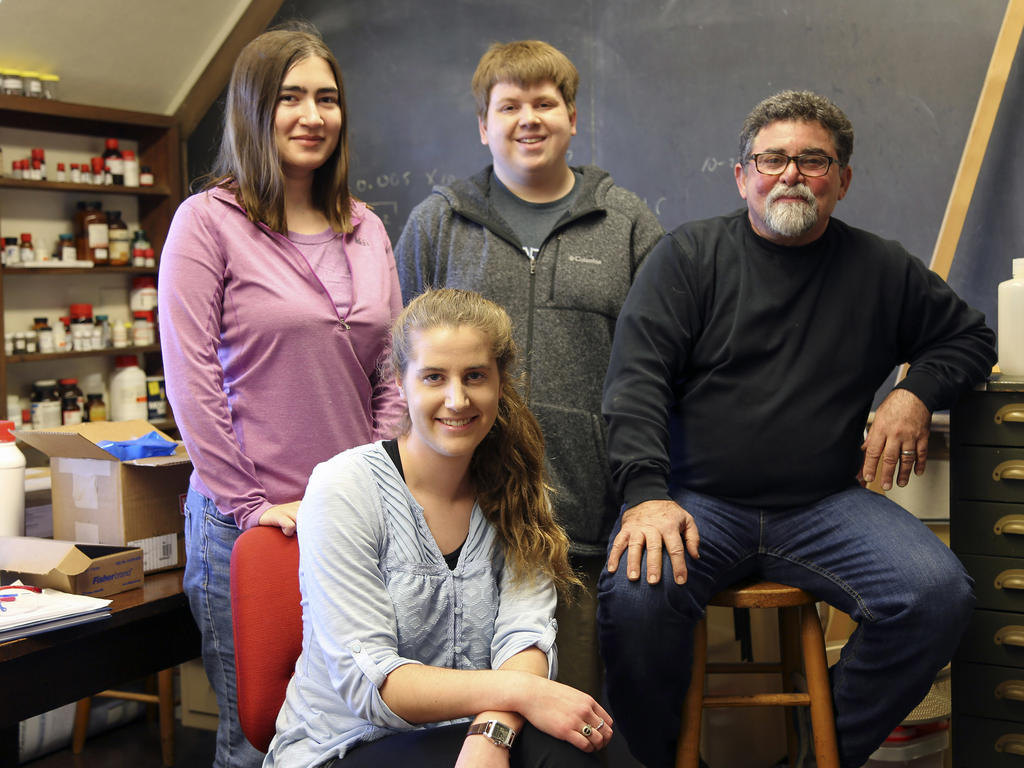Rhodes College follows the scholar-mentor model of liberal arts education, in which undergraduates work closely on research or creative projects with their professors. Ryan Hunt ’17, Hope Elliott ’18, and Natalie Prodanovich ’18, students of Dr. Jon Russ of the Department of Chemistry, have had the opportunity to work on a unique research project that combines two seemingly disparate fields: archaeology and chemistry.
Along with Dr. Jera Davis, an anthropology professor at the University of Alabama, and Dr. Stephen Carmody, an ethnobiologist from the University of the South, Russ has been studying ancient smoking pipes to discover the beginning of tobacco smoking as a social practice. By gathering organic residue from the insides of the pipes and looking for indicators of tobacco, Russ is looking to determine when the use of tobacco began. The group will take the results of the research and use them to answer questions about indigenous Americans in the Southeast; thus, their research is directly applicable to the culture and history of these peoples.
Hunt and Prodanovich are chemistry majors, and Elliott is an environmental science major. All three students were enthusiastic to join Russ in his project because of the unique experience the project’s multi-faceted exploration of the artifacts would provide. Hunt, who has plans to enroll in a doctoral program for chemistry in the fall, explains, “This project is heavily interdisciplinary in nature, blending chemistry with anthropology and archaeology. We are responsible for the extraction of relevant organic compounds and analytical techniques. My involvement in Dr. Russ' research group has been incredibly important for my growth as a chemist.”
Prodanovich, who also plans to attend graduate school for chemistry, chose to enroll at Rhodes because of this unusual research opportunity. “When I started looking at colleges and found Dr. Russ, whose research involves both chemistry and archaeology, it was impossible to pass up,” says Prodanovich. “I ended up joining his group in spring 2016, and spending extra time in the lab and seeing chemistry used toward solving real-world problems has been an invaluable experience for me. I have been fortunate enough to learn about working in other fields, and what it’s like to have research that has one foot in the sciences and the other in liberal arts.”
Elliott says that the research directly relates to her studies in environmental science because the artifacts under analysis have been exposed to the natural world for so long. “The techniques I have learned working in Dr. Russ’ lab are going to be extremely useful in pursuing a graduate degree in environmental chemistry,” she adds. “Conducting research has made me more comfortable with formulating my own hypotheses and testing them with experiments or finding background information. Working directly under a professor’s instruction really makes it easier to ask questions.”
One of Russ’ goals for the students is for them to get experience presenting their findings in professional settings. But aside from practice with laboratory procedures and presentation, the students agree that the most enriching aspect of researching directly under a professor is the close mentorship that it entails.
“Dr. Russ has been a great mentor,” says Prodanovich. “I can always ask him questions about any of my classes.”
“I barely knew Dr. Russ when I first joined his group, but he is now unquestionably the first person I approach when I need earnest advice or assistance,” agrees Hunt. “Having someone upon whom you can rely to champion your cause is of immeasurable value.”
By Katherine Hancock ’19
